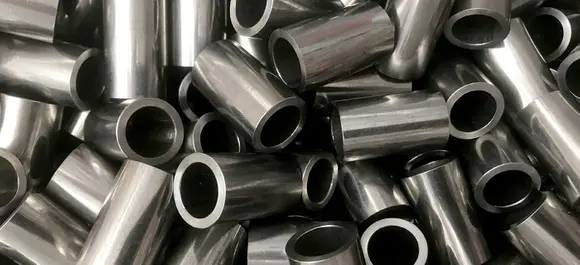Mobile:+86-311-808-126-83
Email:info@ydcastings.com
4 inch pipe end cap
Understanding the Importance of 4-Inch Pipe End Caps
When it comes to plumbing, HVAC systems, and various industrial applications, the term 4-inch pipe end cap is frequently encountered. These caps serve as crucial components in many piping systems, providing essential functions that maintain the integrity and efficiency of the entire installation. In this article, we will explore what 4-inch pipe end caps are, their benefits, applications, and considerations when selecting the right cap for your needs.
What is a 4-Inch Pipe End Cap?
A 4-inch pipe end cap is a fitting that is specifically designed to close off the end of a 4-inch diameter pipe. Typically made from materials such as PVC, stainless steel, cast iron, or plastic, these caps are engineered to create a tight seal that prevents the escape of fluids, gases, or other substances contained within the pipe. The end cap acts as a barrier, ensuring that nothing leaks out of the system, which is critical in maintaining pressure and preventing contamination.
Benefits of Using 4-Inch Pipe End Caps
1. Leak Prevention One of the primary functions of an end cap is to prevent leaks. Whether it's a fluid-carrying pipe or ventilation ductwork, ensuring that the contents remain within the system is essential. End caps effectively seal the pipe, eliminating the risk of leaks that could lead to costly repairs and potential safety hazards.
2. System Maintenance Using end caps can simplify the maintenance of piping systems. By sealing off sections of pipes, maintenance personnel can easily isolate parts of the plumbing without having to remove entire sections. This feature is particularly useful during repairs and inspections.
3. Pressure Resistance Many 4-inch pipe end caps are designed to withstand significant pressure. This feature is particularly important in high-pressure applications, where the integrity of the end cap directly affects the overall performance of the system.
4. Versatility 4-inch pipe end caps can be used across various industries, including residential plumbing, industrial applications, and environmental systems. Their versatility makes them a favored choice for contractors and engineers alike.
5. Cost-Effectiveness Installing an end cap is often a cost-effective solution compared to other sealing methods. They are generally affordable and can save money in the long run by preventing leaks and maintaining system efficiencies.
Applications of 4-Inch Pipe End Caps
4-inch pipe end caps are commonly used in a variety of applications. Here are a few notable examples
4 inch pipe end cap

- Plumbing Systems In residential and commercial plumbing, end caps are frequently used to seal unused or abandoned pipes.
- HVAC Systems In heating, ventilation, and air conditioning systems, end caps prevent air leakage, ensuring that the system operates efficiently
.- Wastewater Management In sewer systems, end caps are crucial for sealing pipes to prevent the escape of sewage and odors.
- Chemical Processing In industries dealing with hazardous materials, end caps are vital for securing pipelines and preventing leaks that could pose safety risks.
Considerations When Choosing a 4-Inch Pipe End Cap
When selecting a 4-inch pipe end cap, several factors should be considered
1. Material The choice of material is critical depending on the application. For example, PVC is often used for plumbing, while stainless steel may be required for industrial applications due to its resistance to corrosion.
2. Pressure Rating Make sure to choose an end cap that can withstand the pressure of the system it will be installed in.
3. Temperature Resistance Evaluate the temperature conditions the end cap will be subjected to, as this will influence material choice and longevity.
4. Standards and Certifications Ensure that any end cap you purchase meets the necessary industry standards and certifications for quality and safety.
Conclusion
In summary, 4-inch pipe end caps play an essential role in a variety of industries by providing leak prevention, simplifying maintenance, and ensuring system efficiency. With their versatility and cost-effectiveness, they are indispensable components in modern piping systems. When selecting an end cap, consider the specific needs of your application, including material, pressure rating, and temperature resistance, to ensure optimal performance and longevity.
-
Why Should You Invest in Superior Pump Castings for Your Equipment?NewsJun.09,2025
-
Unlock Performance Potential with Stainless Impellers and Aluminum End CapsNewsJun.09,2025
-
Revolutionize Your Machinery with Superior Cast Iron and Aluminum ComponentsNewsJun.09,2025
-
Revolutionize Fluid Dynamics with Premium Pump ComponentsNewsJun.09,2025
-
Optimizing Industrial Systems with Essential Valve ComponentsNewsJun.09,2025
-
Elevate Grid Efficiency with High-Precision Power CastingsNewsJun.09,2025











